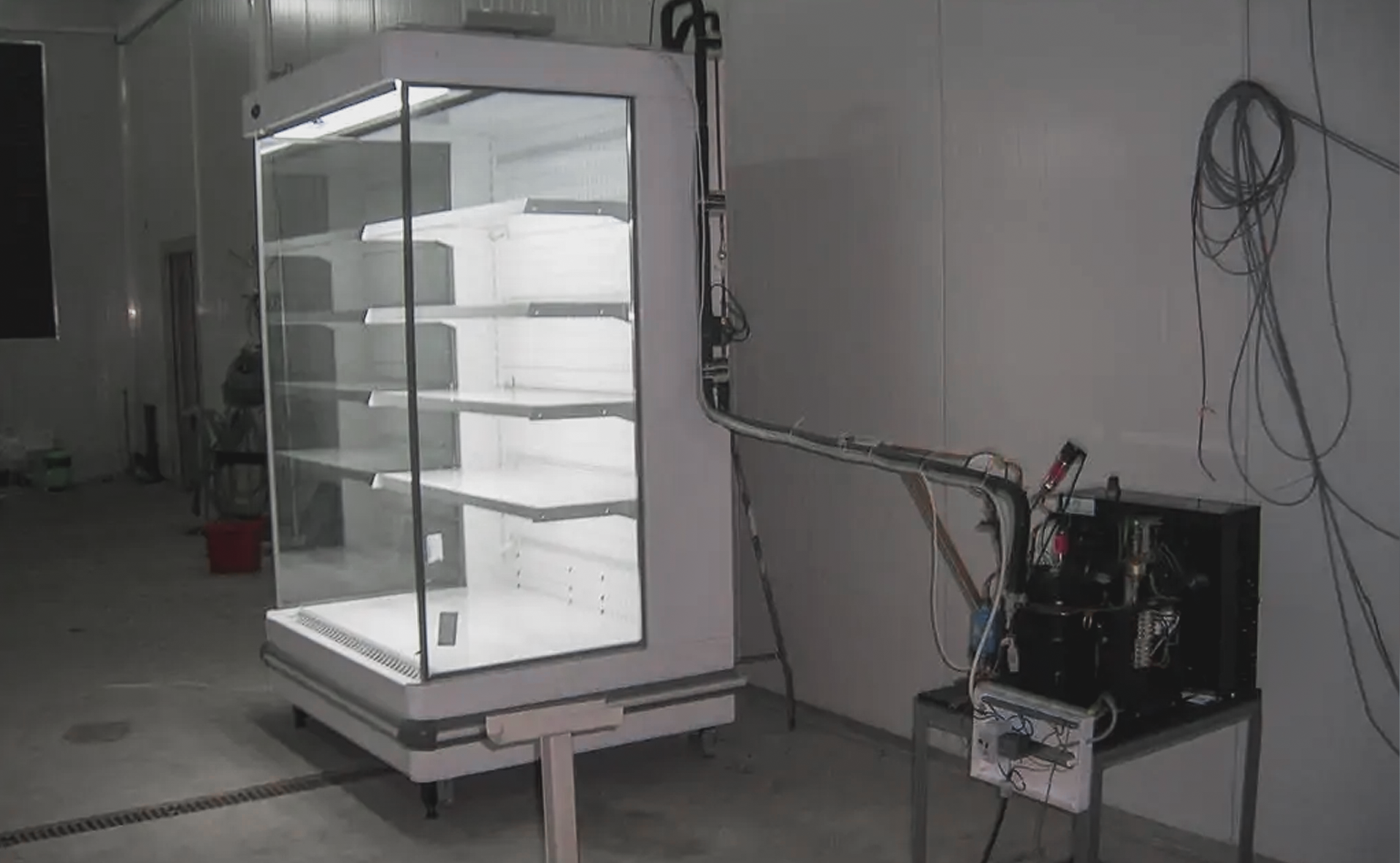FAQ
Details of refrigerated furniture test
Types of tests performed
Accreditation
Contact information and request
We perform testing of refrigerated furniture - for manufacturers, distributors and end customers.
The tests are accredited by the Polish system of testing laboratories (accreditation of the Polish Accreditation Center No. AB 308), and licensed to use the international mark ILAC MRA, of mutual recognition of test reports issued by accredited laboratories around the world.
What does COCH do for refrigerated furniture testing?
What types of refrigerated furniture are studied by COCH?
COCH Tests a Wide Range of Refrigerated Furniture, Including:
Refrigerated Counters: Primarily used in grocery stores for storing and displaying fresh products such as meat, deli items, cheese, and fish.
Refrigerated Shelves: Used for displaying and storing chilled products in self-service stores, providing easy access to products for customers.
Refrigerated Cabinets: Employed in both retail and gastronomy for storing products that require low temperatures, such as beverages, dairy products, and frozen foods.
Refrigerated Showcases: Used for displaying food products in restaurants, cafes, and patisseries, where both cooling functionality and the aesthetics of product presentation are important.
What parameters are evaluated during testing?
During the testing of refrigerated furniture, the following parameters are evaluated:
Energy Efficiency: Analysis of the energy consumption of the devices under various operating conditions. The goal is to assess energy efficiency and identify opportunities for reducing operational costs.
Cooling Efficiency: Examination of how effectively the devices maintain the required temperatures. It is crucial that products stored in refrigerated furniture remain fresh for as long as possible.
Temperature Stability: Testing whether the devices can maintain a constant temperature inside the refrigerated chamber, regardless of external weather conditions and usage intensity.
Energy Consumption: Measurement of the amount of electrical energy used by the devices over a 24-hour period. This information is important for store owners and gastronomic businesses looking to reduce operating costs.
Acoustics: Evaluation of the noise level generated by the devices. Low noise levels are important for the comfort of customers and employees in locations where the devices are installed.
Compliance with Standards and Regulations: Verification that the devices meet the requirements set out in applicable national and European standards and regulations.
What standards and regulations are taken into account during the study?
During the testing of refrigerated furniture, COCH adheres to current European and national standards, such as:
Commission Regulation (EU) No 2015/1095: Specifies ecodesign requirements for refrigeration appliances used for food storage. These standards aim to improve energy efficiency and reduce environmental impact.
Commission Regulation (EU) No 2015/1094: Concerns energy labeling of refrigeration appliances, enabling consumers to make informed purchasing decisions, taking into account operational costs and environmental impact.
EN ISO Standards: Contain detailed requirements for testing and measurement methods, ensuring the reliability and consistency of test results. These standards cover both technical aspects and user safety.
What are the possible additional tests?
In addition to standard tests of temperature distribution inside the body of commercial vehicles, the COCH laboratory also offers a number of additional tests that allow an even more accurate assessment of the conditions under which pharmaceutical products are transported.
Details of refrigerated cabinet test
Requirements for cabinet energy labels - refrigerated furniture test
Energy labels are an important information element that allows consumers to make informed choices when purchasing refrigeration equipment. They are intended to make information about the energy efficiency and energy consumption of these appliances more transparent. The requirements for energy labels are set out in European Union regulations, which manufacturers must comply with.

Read more....
Types of tests and standards used
At COCH, we conduct comprehensive testing of refrigerated furniture, which includes evaluation of various parameters such as energy efficiency, cooling efficiency, temperature stability, energy consumption and noise levels. These tests ensure that the equipment meets the highest standards of quality and compliance with applicable standards and regulations.
The standards used include, among others, European Commission (EU) Regulations 2015/1094 and 2015/1095, which address energy labeling and eco-design of refrigeration equipment. In addition, EN ISO standards specify detailed requirements for measurement and testing methods, which guarantees the reliability and consistency of test results.
Conducting these tests and obtaining certificates of compliance from COCH brings many benefits, including confirmation of regulatory compliance, improved energy efficiency, increased competitiveness in the market, and access to detailed expert reports and analysis.
Types of Conducted Tests:
Testing of Refrigerated Furniture (according to PN-EN 23953-2):
- Description: Assessment of refrigerated furniture based on classification, requirements, and testing conditions.
- Objective: Ensure compliance with specified standards for refrigerated storage solutions.
Refrigeration System (Cooling) Efficiency Testing:
- Description: Evaluation of the efficiency of refrigeration installations.
- Objective: Measure and optimize the energy efficiency of cooling systems in various operational conditions.
Temperature Test Trials:
- Description: Testing conducted to simulate and analyze temperature conditions.
- Objective: Validate the performance and reliability of cooling systems under controlled temperature environments.
Standards Applied:
- PN-EN ISO 23953-2:2016-04 – Refrigerated Furniture — Part 2: Classification, Requirements, and Test Conditions
- PN-EN ISO 22041:2019-09/A1:2020-04 – Refrigerated Cabinets and Counters for Professional Use — Performance and Energy Consumption
- PN-EN 62552:2021-01 – Refrigerating Appliances — Characteristics and Test Methods — Part 2: Functional Requirements
- ISO 22043:2020 – Ice Cream Freezers — Classification, Requirements, and Test Conditions
- ISO 22042:2021 – Blast Chiller and Freezer Cabinets for Professional Use — Classification, Requirements, and Test Conditions
- PN-EN 16764:2016-06 – Ice Cream Machines — Operating Characteristics and Energy Consumption Assessment
These standards guide the testing processes to ensure consistency, reliability, and compliance with functional and energy efficiency requirements across various types of refrigeration and cooling equipment.

Accreditation
Quality accreditation - a guarantee of trust
The AB 308 Refrigeration Equipment Laboratory is accredited by the Polish Accreditation Center and specializes in testing refrigeration equipment.
Our team consists of qualified and experienced specialists who offer comprehensive assistance in the process of preparation for testing and the refrigeration equipment tests themselves. With our services, we provide customers with reliable and professional service at every stage of cooperation.


Contact information
Below you will find a list of contact information for COCH Refrigeration Equipment Laboratory
General Affairs
Laboratory manager
mgr inż. Dorota Niedojadło
+48 12 637 08 57
+48 667 600 635
laboratorium@coch.pl

















































